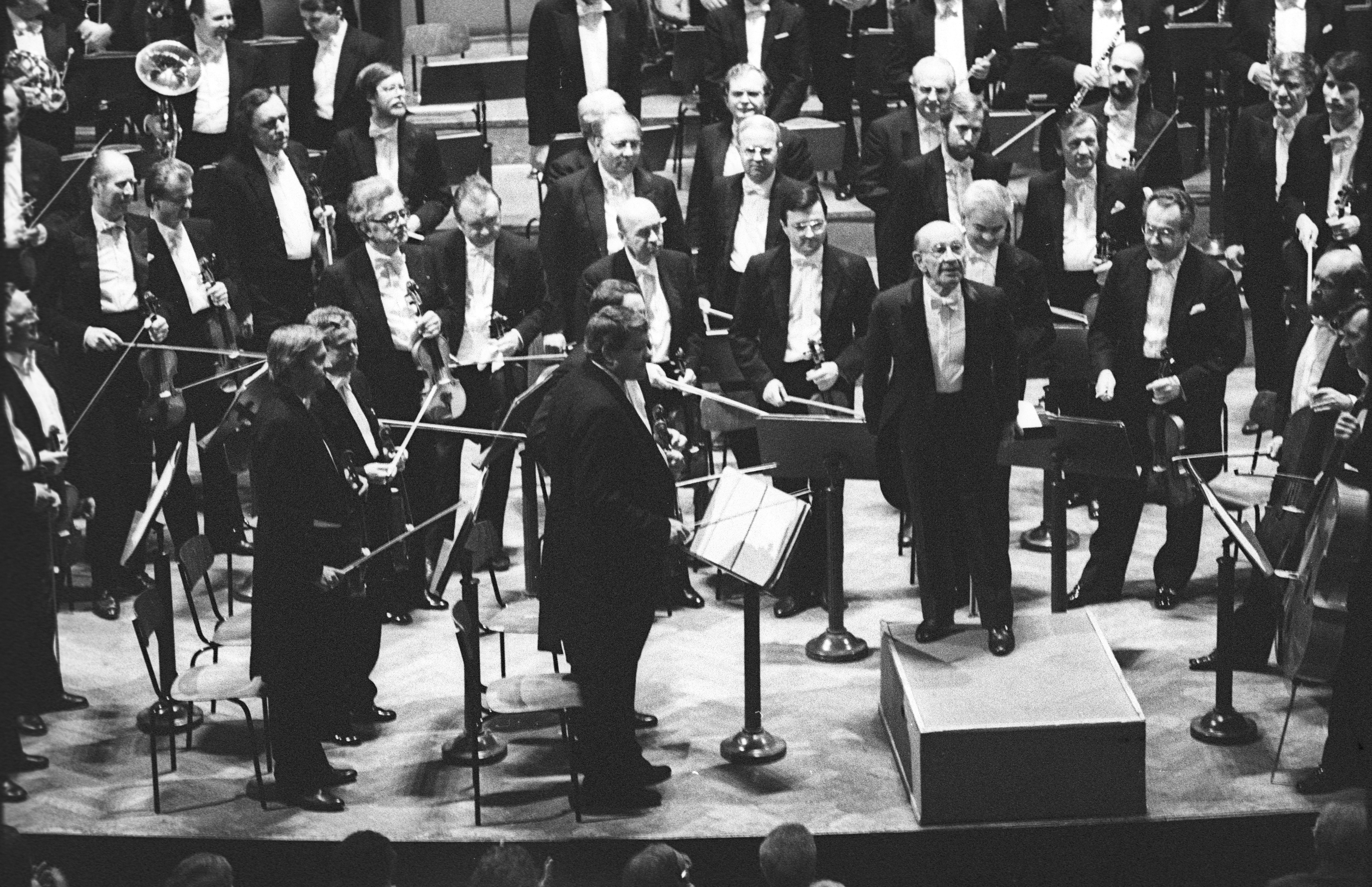
Erich Leinsdorf (Erich Landauer)
Conductor from Austria1912, February 4th in Vienna, Austria - 1993, September 11th in Zürich, Switzerland
In November 1937, Leinsdorf travelled to the United States to take up a position as assistant conductor at the Metropolitan Opera in New York City. His departure from Austria came a few short months ahead of the Anschluss of March 1938, when the country was taken over by Nazi Germany. With the assistance of freshman Representative from Texas Lyndon B. Johnson, he was able to stay in the United States, and became a naturalized American citizen in 1942.
After the sudden death of Artur Bodanzky in 1939, he was named the Met's "head of German repertoire". From 1943 he had a brief three-year post as Music Director of the Cleveland Orchestra, but was absent for much of this tenure because he was drafted into the United States Armed Forces for World War II; the orchestra did not renew Leinsdorf's contract.
Leinsdorf was the principal conductor of the Rochester Philharmonic Orchestra from 1947 to 1955. He came to despair of what he saw as Rochester's insular musical culture. Subsequently he was briefly head of the New York City Opera, before resuming his association with the Met. In 1962 he was named music director of the Boston Symphony Orchestra. His time in Boston would produce many recordings for RCA, but was also marked by controversy, as he occasionally clashed with musicians and administrators.
On November 22, 1963, during a Boston Symphony concert, Leinsdorf had to announce the reports of President John F. Kennedy's assassination in Dallas, Texas to a shocked audience. He and the orchestra followed the news with a performance of the Funeral March from Beethoven's third symphony. In 1969 Leinsdorf left the Boston post. He would continue to guest-conduct operas and orchestras around the world for the next two decades, being particularly associated with the Metropolitan Opera and the New York Philharmonic. He died of cancer in Zürich, Switzerland, at the age of 81. Source: Wikipedia
| Usual Name | Erich Leinsdorf |
| On Wikipedia | Erich_Leinsdorf |
| Ensembles |
Cleveland Orchestra
from 1943
to 1946
Boston Symphony Orchestra from 1962 to 1969 |
| Links | Naxos Page |
Images
| Title | Subname | Catalogue | Key | Year | Type |
|---|
No releases found for this artist.